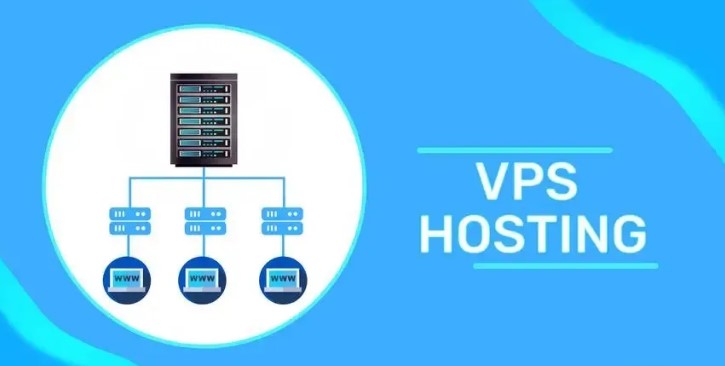Introduction
In the digital age, where the performance and reliability of your online presence can make or break your business, choosing the right hosting solution is crucial. Enter the Virtual Private Server (VPS) – a perfect middle ground between shared hosting and dedicated servers. But what exactly is a VPS, and how do you choose the best plan for your needs? This guide will walk you through everything you need about VPS Plans.
What is a VPS?
A Virtual Private Server, or VPS, is a virtualized server that mimics a dedicated server within a shared hosting environment. It provides you with dedicated resources, greater control, and improved performance compared to traditional shared hosting. Unlike shared hosting, where multiple websites share the same server resources, a VPS allocates a specific portion of the server’s resources to your virtual environment, ensuring better performance and stability.
Types of VPS Plans
When choosing a VPS, you’ll encounter two primary types of plans: managed and unmanaged.
Managed VPS: This type comes with full support from the hosting provider. They handle server maintenance, updates, and security, allowing you to focus on your website or applications without worrying about technical aspects.
Unmanaged VPS: This plan is more suited for users with technical expertise. You get full control over your server but are responsible for all maintenance, updates, and security configurations. It’s a flexible option for developers who need custom configurations.
Key Features of VPS Plans
When evaluating VPS plans, consider these essential features:
CPU and RAM: The number of CPU cores and the amount of RAM are critical for your server’s performance. More CPU cores and RAM ensure smoother and faster operation, especially for resource-intensive applications.
Storage Options: VPS plans offer different types of storage, such as SSDs (Solid State Drives) and HDDs (Hard Disk Drives). SSDs are quicker and more dependable, making them the favored choice for most clients.
Bandwidth and Data Transfer: Ensure the plan provides adequate bandwidth to handle your website’s traffic. Higher bandwidth allows for more data to be transferred, which is crucial for high-traffic sites.
Operating System Choices: VPS plans typically offer a range of operating systems, including various distributions of Linux and Windows. Choose an OS that best suits your technical requirements and familiarity.
Benefits of Using a VPS
Using a VPS comes with numerous advantages:
Improved Performance: With dedicated resources, your website or application will run faster and more efficiently compared to shared hosting.
Scalability: VPS plans are highly scalable. As your needs develop, you’ll effortlessly overhaul your assets without noteworthy downtime.
Enhanced Security: VPS offers better security features than shared hosting, including isolated environments and customizable security settings.
Cost-Effectiveness: While more expensive than shared hosting, VPS plans are cheaper than dedicated servers, providing a good balance between cost and performance.
How to Choose the Right VPS Plan
Choosing the right VPS plan involves several considerations:
Assessing Your Needs: Determine what resources you need based on your website or application’s requirements. Consider factors like traffic, storage, and performance demands.
Budget Considerations: Evaluate your budget and find a plan that offers the best value for money. Don’t just look at the price; consider what features and resources you get for that price.
Future Growth Potential: Choose a plan that can grow with your business. Scalability is crucial to accommodate increasing traffic and resource demands.
Technical Expertise: Decide whether you need a managed or unmanaged plan based on your technical skills. Managed plans are more convenient for those who lack technical know-how.
Top VPS Providers
Several hosting providers offer excellent VPS plans. Here’s a speedy diagram of a few well-known ones:
DigitalOcean: Known for its simplicity and robust performance, DigitalOcean offers scalable VPS solutions with a range of configurations.
Vultr: Vultr provides high-performance VPS plans with competitive pricing and a wide range of global data centers.
Linode: Linode is popular for its developer-friendly environment and excellent customer support.
AWS (Amazon Web Services): AWS offers powerful and flexible VPS solutions, though it’s often more complex and suited for advanced users.
Common Use Cases for VPS
A VPS is versatile and can be used for various purposes:
Hosting Websites: VPS is ideal for hosting websites that require more resources and control than shared hosting can provide.
Running Applications: Deploy and run applications that need a dedicated environment with customizable resources.
Development and Testing Environments: Developers can use VPS for staging environments to test applications before deploying them to production.
Game Servers: A VPS can host game servers, providing a stable and customizable environment for gamers.
Conclusion
Choosing the proper VPS arrangement could be a significant choice that can affect your online nearness. By understanding your needs, evaluating different plans and providers, and considering future growth, you can find a VPS solution that offers the performance, security, and scalability your business requires. Whether you are hosting a website, running applications, or creating a development environment, a VPS provides the dedicated resources and control you need to succeed.










